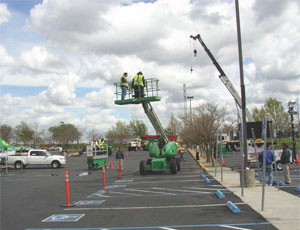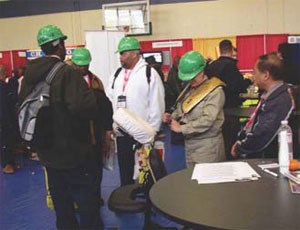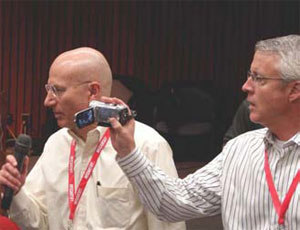...minor, might draw the media�s attention.
�What is a crisis?� asks Gray, a former television news anchor and reporter. �Death, structural failure, weather damage, fire, workplace violence, OSHA citations, sexual harassment and theft, fraud or financial malfeasance. Basically, the unexpected.�



When the crisis occurs, Gray says to instruct workers not to talk to the media. “Send them home or to another job,” he says.
Then, review the company’s crisis plan, liaison with law enforcement and call the client or owner. But whatever you do, do not stonewall the media, he says.
Rockford Gray has developed a “Buy Time” statement that has helped in numerous crises and gives the construction firm “critical minutes to activate your crisis management plan.”
“Any company’s ill-considered response to the media, to employees, owners, partners and regulators can quickly damage your good reputation,” says Gray.
The Buy Time statement reads: “My name is ___ and I am ___ with ___. I can confirm that there has been an incident. (If appropriate give limited facts related to time and place.) We want to help you with your story, but we need to gather the facts before saying anything. I don’t have enough information to answer your questions. I know we all want to get the information right. Our spokesperson or I will be back in contact with you in 60 minutes to give you an update.”
During the session, Rockford and Gray presented a hypothetical crisis concerning a sexual assault on the job site and a suspect, an ex-felon, on a work program with the construction firm. The principals asked the audience to develop their own crisis plan and work out a schedule. Rockford says the construction firm should always focus on “managing the victim dimension” of a crisis; companies are ultimately judged on how they handle the victims that a crisis creates.
With the Internet playing a crucial role in any crisis management situation, Rockford Gray suggests firms create a crisis website template, or dark site that can be activated when a crisis occurs.
“When activated, link the site to critical information from your home page,” says Rockford. “Be prepared to market your response website through Google, Yahoo or other search engines. Refer reporters to the website, but make sure it’s updated regularly.”
Rockford adds that your company spokesman, when addressing the media, should show emotion and be sympathetic (“you’ve lost a co-worker, part of the family”).
“Don’t let reporters badger you to say something wrong,” he says. “Remember that nothing is off the record.”
And finally, consult with management/legal about establishing a policy that restricts the use of cell phones with photo and video capabilities.
“Initiate a no-text/Twitter/email policy by employees during a crisis, except to inform family members that they are okay,” says Rockford.
The Expo’s Neely says though contracts have yet to be signed at press time, he is 99% sure the Expo will return to Cosumnes River College next year during spring break, April 18-22. Visit www.sacsafetyexpo.com for more details.


Post a comment to this article
Report Abusive Comment